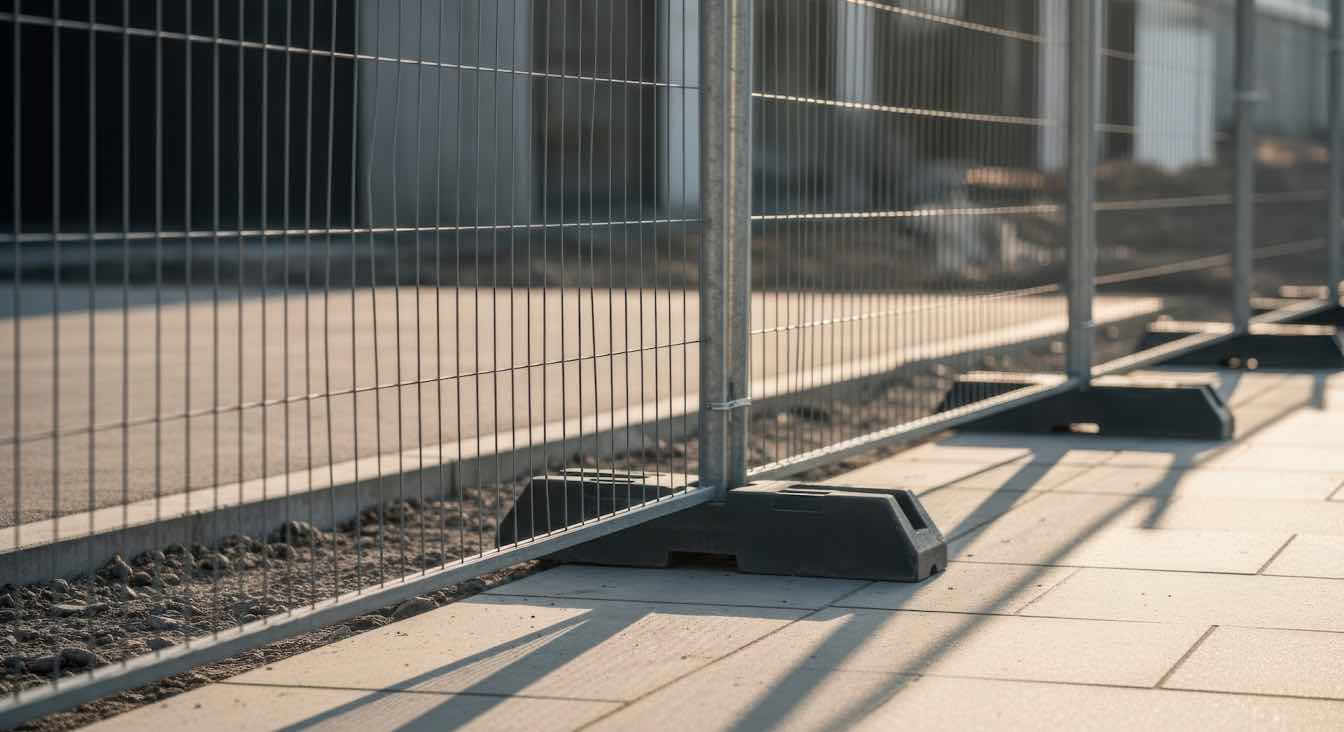Temporary fencing is a practical solution for managing crowd control safety and restricted access at public and private events. Whether you are organising a music festival a sporting event a community market or managing a building site temporary fencing helps to keep the area secure and compliant with local regulations. However renting temporary fencing involves more than just calling up a supplier and placing an order. There are a number of key factors to consider that can impact your overall budget and understanding these in advance will help you avoid unexpected costs.
Here is what you need to know before you rent temporary fencing
1. Understand Your Site or Event Requirements
Before you can estimate costs accurately you need to determine how much fencing your event or site requires and what type will best suit your needs. Consider the size of your venue or construction zone the layout and the number of access points. Will you need pedestrian or vehicle gates Do you need privacy screening branded signage or dust control barriers
Different projects require different fencing solutions. A small local event may only need a few dozen metres of standard panel fencing while a large-scale building site could require reinforced fencing panels with added safety signage. Make a clear plan of your fencing needs before reaching out to suppliers.
2. Types of Temporary Fencing and Their Costs
Temporary fencing is not one-size-fits-all and prices vary depending on the type and quality of fencing you choose. The most common types include
- Standard temporary fencing panels
Ideal for general crowd control and perimeter definition. These are usually the most budget-friendly option.
- Heavy-duty fencing panels
Used for construction sites or high-security areas. These are built to withstand wind pressure and external impact.
- Barriers and bollards
Often used for directing pedestrian or vehicle traffic. Costs depend on quantity and type.
- Privacy or shade cloths and dust screens
Can be added for additional security or to reduce dust and debris. These incur extra rental and installation fees.
3. Temporary Fencing on Construction Sites
Temporary fencing is a legal requirement for many construction sites across Australia. Under Work Health and Safety Regulations construction zones must be properly secured to prevent unauthorised entry and protect the public from potential hazards.
For builders and site managers temporary fencing is not just about access control it is about compliance. Fencing must be installed correctly and remain in good condition for the duration of the project. You may also need signage warning of hazards and safety risks.
Budget considerations for construction fencing include
- Longer rental periods
Construction projects can span weeks or months which means ongoing rental costs need to be factored in from the beginning.
- Stronger fencing requirements
Building sites often require heavy-duty panels with bracing for stability and protection from high winds.
- Site changes
As the project progresses fencing may need to be adjusted or relocated which can attract additional fees.
- Security features
Sites may require padlocks CCTV mounting poles or after-hours access gates. These come at an extra cost but are often necessary to prevent theft or vandalism.
It is important to choose a supplier who is familiar with construction regulations and can help ensure your site remains compliant throughout the project.
4. Rental Duration and Timing
The length of time you need the fencing will significantly affect the total cost. Most suppliers offer daily weekly or monthly rates with discounts for longer-term rentals. Include time for setup and pack down when calculating your hire period.
Booking early not only ensures availability especially during busy periods but can also lock in better rates. Last-minute bookings often come with premium charges.
5. Delivery Installation and Removal Costs
Many organisers and site managers overlook the logistics costs associated with temporary fencing. Most suppliers charge additional fees for delivery installation and removal. These can vary depending on your location the volume of fencing required and site accessibility.
Remote or hard-to-access sites attract higher transport fees and complex installations may require specialised equipment or after-hours labour. Always ask for a detailed breakdown of these costs in your quote.
6. Additional Features and Accessories
Beyond the fencing itself there are optional extras that can enhance functionality and safety including
- Gates for pedestrian and vehicle access
- Stabilising feet and wind bracing
- Signage such as safety notices or site entry information
- Custom shade cloths or dust barriers
While these will increase your costs they may be necessary for regulatory compliance and public safety.
7. Insurance and Damage Liability
Temporary fencing is a rental asset and you may be liable for any damage loss or theft. Suppliers often include clauses in the contract covering this.
Ensure you understand who is responsible for the fencing once it is delivered. Check whether your public liability or site insurance covers temporary fencing. Some companies offer a damage waiver for an extra fee which may be worth including especially on longer projects or high-traffic sites.
8. Compliance and Local Council Regulations
Whether for events or construction many councils have specific requirements for temporary fencing including permits and safety standards. For example you may need permission to install fencing on public land or footpaths.
Non-compliance can lead to fines or project delays. Always check with your local council early and work with a supplier who understands these regulations.
9. Compare Quotes and Read the Fine Print
Get quotes from several suppliers and compare more than just the base price. Make sure you understand what is included such as installation gates bracing or cloths.
Read the rental contract carefully to avoid hidden costs. Check for cancellation fees late return penalties and terms related to damage or early pick-up.
Final Thoughts
Whether you are planning an event or managing a building site temporary fencing is a critical component of safety and compliance. Costs can add up quickly if you are not prepared so take the time to understand your needs plan for the full rental period and budget for all associated expenses.
Working with an experienced fencing provider who understands the unique requirements of your site or event will save time money and stress. With careful planning temporary fencing becomes a smart investment in protecting people property and your project’s success.





